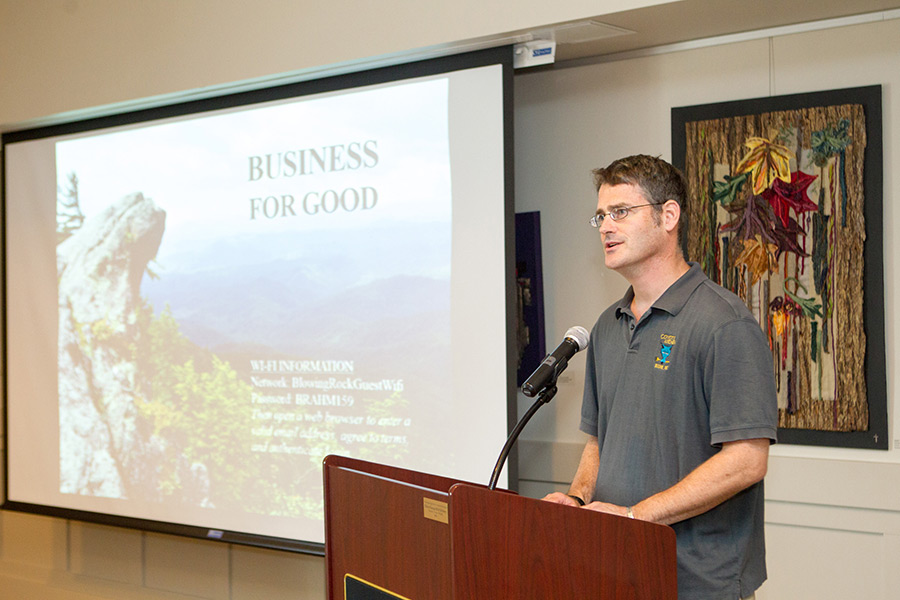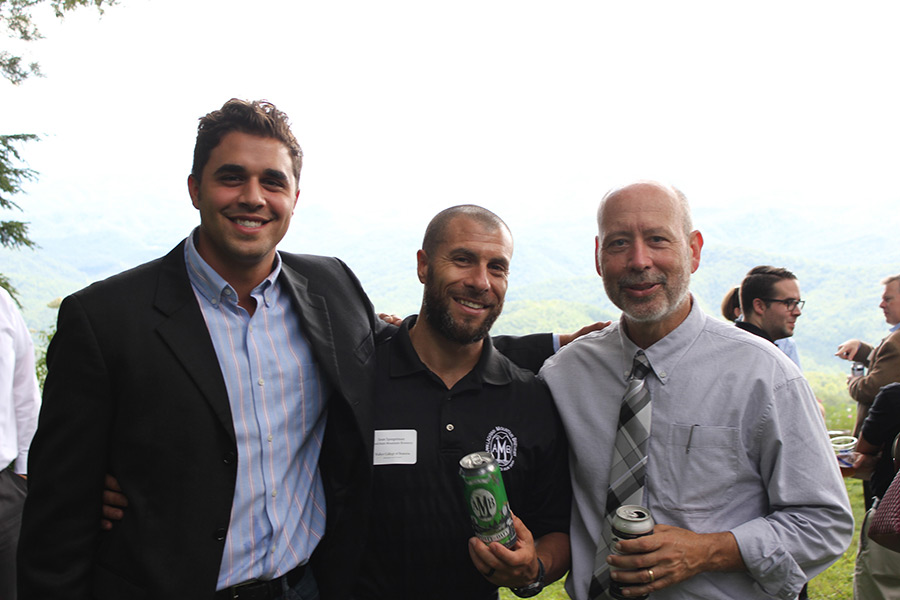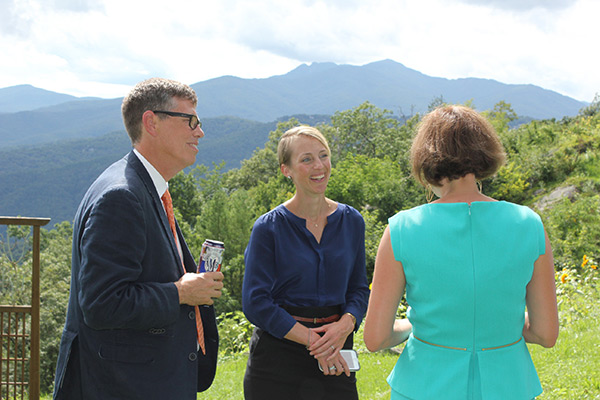In introducing the community partners involved in the second annual Business for Good event hosted by Appalachian State University’s Walker College of Business (WCOB), Professor Heather Dixon-Fowler said her college “no longer uses the term ‘vendor,’ which is transactional, but prefers ‘community partners’ and supports businesses that are forces for good in the High Country communities.”
Interim Director of the Office of Sustainability Lee F. Ball concurred, “If you are at all interested in sustainability or local economies, then it is important to know about and to support our local and regional partners that contribute to making the world better through the use of business models that focus on people, places and profit. Businesses such as Bald Guy Brew, Coyote Kitchen and Appalachian Mountain Brewery do this and are deeply committed to the practice many are calling ‘business for good.’”
Cox, who recently lost all of his hard assets in a fire at his Bald Guy Brew coffee bean roasting facility in Valle Crucis, gave heartfelt testimony to the pure, core values of sustainable business: “Business for good is what the leader does when no one else is looking,” he said. “Everybody wants to sell something and they’re running out of things to say about their products to make them sell. They’ve used up words and made a mess of ‘eco-friendly’ and ‘socially responsible’ and all these keywords to get consumers to buy their products.
“In the end, we have to not think ‘business for good’ is a good idea. If we’re only thinking about it we’re going to compromise when it comes down to bottom line. You do business for good because it is a core value.”
Cox practices what he preaches. He has been active in university activities, having most recently traveled with students to Costa Rica for a deep-dive into the workings of the coffee industry. Cox envisions a world where all goods are truly ethically sourced, where no human is enslaved to labor, and where justice rules every business decision.
General manager of Coyote Kitchen Danny Bock shared some of his establishment’s sustainable business practices, not least of which, he said, was hiring Appalachian students and teaching them to be responsible, global citizens. “I ask my workers, ‘What is your pay check going for? Beer, music festivals or tuition?’ I ask them what is their five-year plan and make a practice of turning a dishwasher into a cook and then into a supervisor. I get postcards from them when they move on saying, ‘Thanks, Chef. You were right.’”
In addition Coyote Kitchen buys locally when possible, contributes to local nonprofits and uses completely recyclable products made in America. Coyote Kitchen offers antibiotic and hormone-free meat options, eco-friendly ocean fishes and vegetarian and vegan dining options.
Vixster is a trash and recycling company that provides a peer-to-peer waste removal service for commercial and residential customers on demand or by subscription. Founder Zak Ammar ’14 ’16, who earned his MBA from the Walker College of Business, launched Vixster with support from the Transportation Insight Center for Entrepreneurship, while a student at Appalachian. Vixster serves the Western North Carolina High Country, including Boone, Blowing Rock, Banner Elk, Valle Crucis and other rural areas in Watauga County and offers trash and recycling removal, junk hauling and waste management services. Vixster invests the proceeds into community projects that are geared toward reducing the overall amount of wastes and recyclables in High Country landfills.
Another community partner, Appalachian Mountain Brewery, employs a business model built on sustainability, community and philanthropy. CEO Sean Spiegelman believes that every company has a duty to be conscious, ethical entities within the community they serve. His company employs cutting-edge and tried-and-true technologies, such as solar panels, rain garden, grain exchange and bike stations to protect the natural environment. Through initiatives such as Pints for Non-Profits, Appalachian’s fermentation sciences program and AMB Venture Capital Fund, Spiegelman hopes to “transform the local High Country community into a more verdant, healthy and exciting place to live and visit.”
What do you think?
Share your feedback on this story.
About Appalachian State University
As a premier public institution, Appalachian State University prepares students to lead purposeful lives. App State is one of 17 campuses in the University of North Carolina System, with a national reputation for innovative teaching and opening access to a high-quality, cost-effective education. The university enrolls more than 21,000 students, has a low student-to-faculty ratio and offers more than 150 undergraduate and 80 graduate majors at its Boone and Hickory campuses and through App State Online. Learn more at https://www.appstate.edu.







![How NCInnovation Is Rethinking Economic Development in North Carolina [faculty featured]](/_images/_posts/2026/02/rethinking-economic-development-600x400.jpg)






